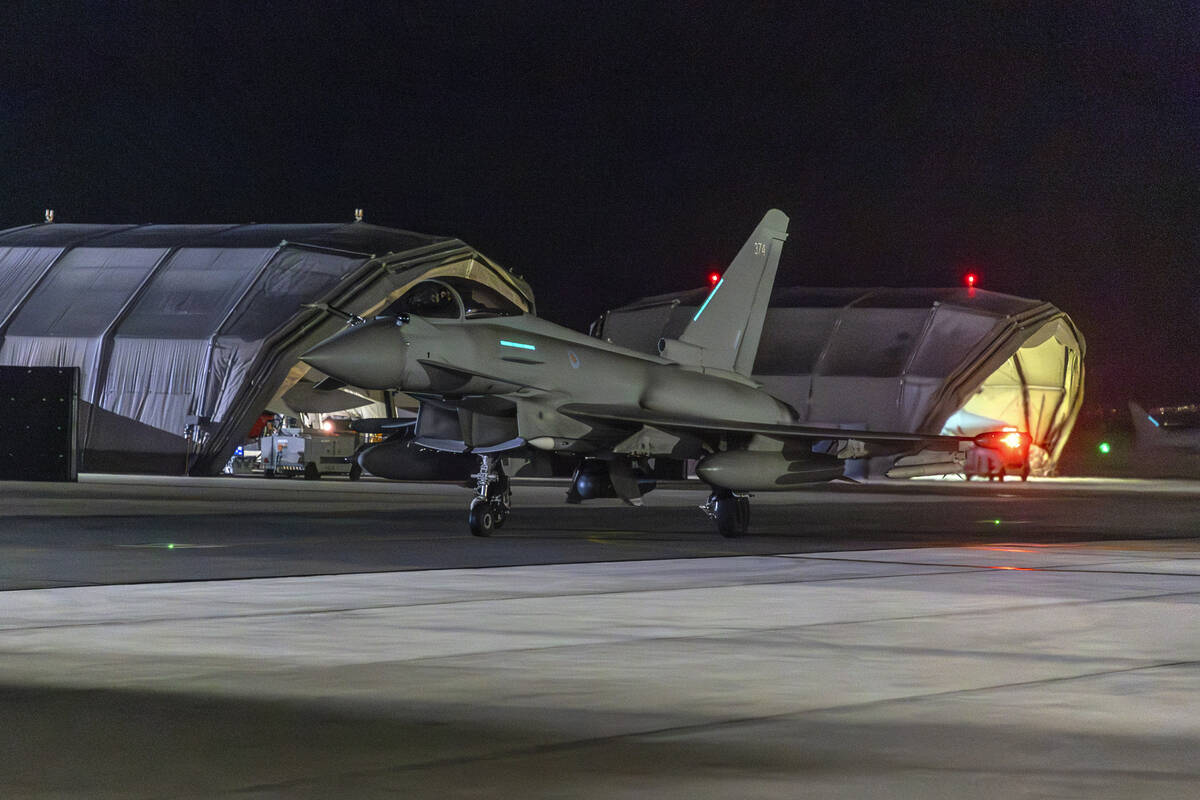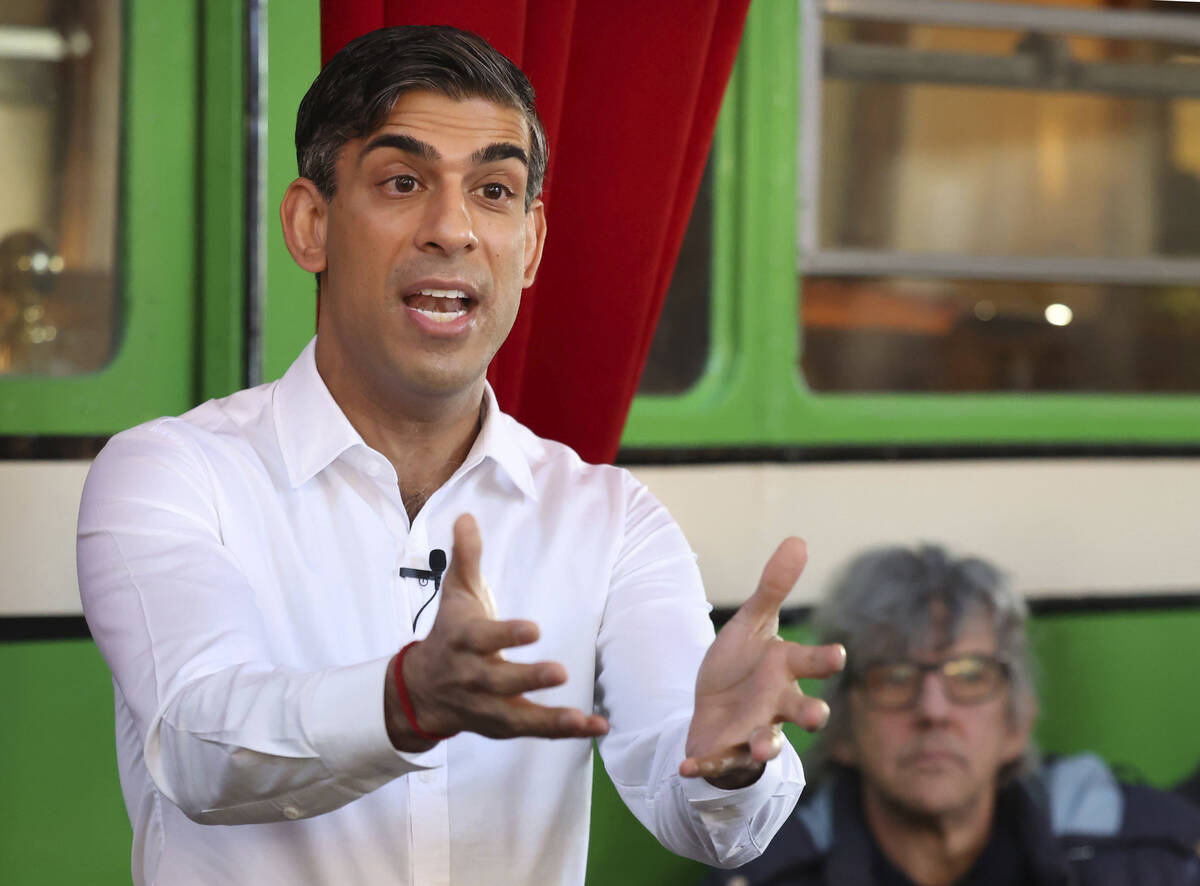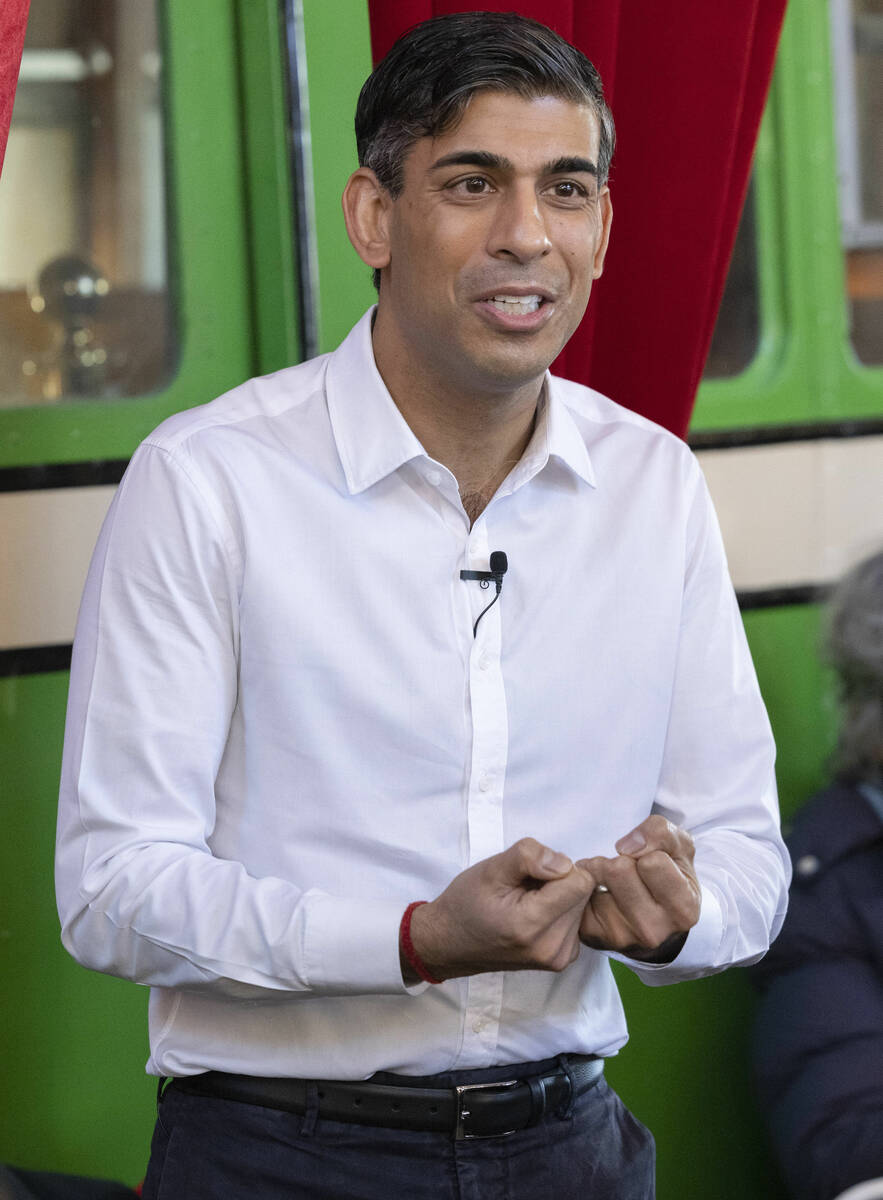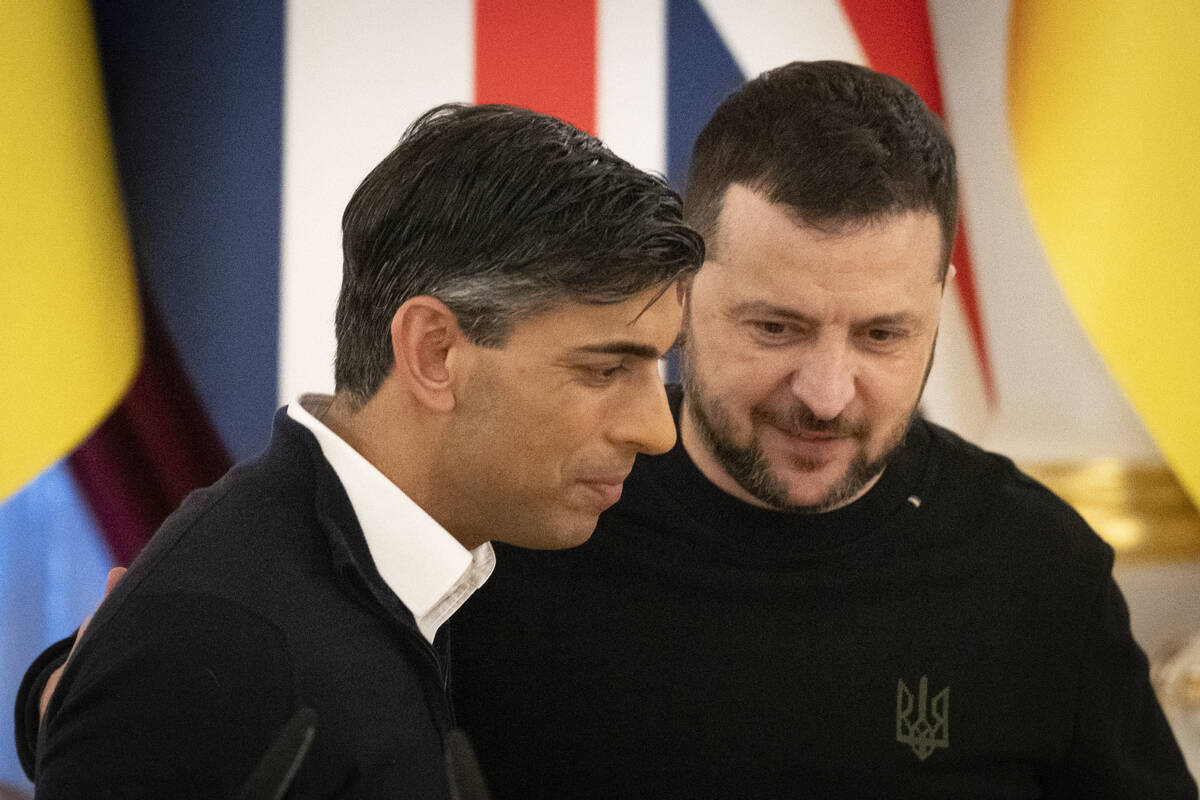Sunak defends decision for UK to join US in ‘limited’ strikes on Houthis
LONDON — Prime Minister Rishi Sunak told the U.K. Parliament on Monday that U.K. strikes on Houthi targets in Yemen, conducted alongside the United States, were “limited, not escalatory” and came in response to a threat to British vessels.
Sunak faced questions about why British lawmakers didn’t get a say on the military action, and he didn’t rule out joining further military action if Houthi attacks continue.
Four Royal Air Force Typhoon jets took part in last week’s U.S.-led strikes on sites used by the Iran-backed rebels, who have been attacking commercial ships in the Red Sea. The U.S. says Friday’s strikes hit Houthi weapons depots, radar facilities and command centers.
Sunak told lawmakers that British jets targeted launch sites for drones and ballistic missiles, and that the U.K.’s initial assessment was that all 13 planned targets had been destroyed, without civilian casualties. He said the aim was to “degrade and disrupt” the Houthis’ ability to launch attacks.
The Houthis say they have targeted ships linked to Israel in response to the war in Gaza. But they have frequently attacked vessels with no clear links to Israel, imperiling shipping in a key route for global trade.
U.S. forces carried out another strike Saturday on a Houthi radar site, but the group’s attempted attacks have continued.
On Monday, a missile struck a U.S.-owned cargo ship just off the coast of Yemen in the Gulf of Aden. The U.S. blamed the Houthis for the attack, which came less than a day after the Houthis fired an anti-ship cruise missile toward an American destroyer in the Red Sea.
Sunak said the British participation “was intended as limited single action and we hope the Houthis will now step back and end their destabilizing attacks.” But, he added, “we will not hesitate to protect our security, our people and our interests where required.”
Keir Starmer, leader of Britain’s main opposition Labour Party, said he supported last week’s strikes, but expects more openness from the government in the future.
“If the government is proposing further action, then it should say so and set out the case, and we’re going to have to consider that on a case-by-case basis on the merits,” he said.
The smaller opposition Liberal Democrats accused the government of “riding roughshod over a democratic convention” that Parliament should get a vote on military action.
Sunak said it had been “necessary to strike at speed … to protect the security of these operations,” so there was no chance to consult Parliament.
Sunak’s government is facing mounting demands on Britain’s ever-shrinking military in an increasingly volatile world. Hours after the strikes on the Houthis, Sunak was in Kyiv, where he announced a further 2.5 billion pounds ($3.2 billion) in military aid to Ukraine and signed a long-term security agreement with President Volodymyr Zelenskyy.
Defense Secretary Grant Shapps, in a speech Monday on U.K. defense policy, said the combination of threats from autocratic states and non-state terrorist groups risked “tearing apart the rules-based international order established to keep the peace after the Second World War.”
He repeated the government’s “aspiration” to increase military spending to 2.5% of gross domestic product from its current level of just above 2%, though he didn’t commit to increasing the number of British troops.
Shapps urged other NATO allies to increase their own defense spending, arguing the era of the “peace dividend” was over and nations were “moving from a postwar to a prewar world.”
Sunak — whose Conservative Party trails Labour in opinion polls ahead of an election due this year — also is struggling to revive his stalled plan to send asylum-seekers on a one-way trip to Rwanda.
Meanwhile, the U.K. government said Monday that the Islamist group Hizb ut-Tahrir is antisemitic and should be banned as a terrorist organization.
Parliament will debate this week a proposal to make joining the group illegal in the U.K. under terrorism laws, the Home Office said. If approved, the ban will take effect on Friday.
The group, which is based in Lebanon but operates in more than 30 countries, including the U.S. and Canada, has organized rallies in London alongside pro-Palestinian marches in recent weeks, following the outbreak of the Israel-Hamas war. Police said that one member was seen chanting “jihad,” or holy war, in a video from an October march, though officers reviewing the evidence decided at the time that no offenses were committed.
“Hizb ut-Tahrir is an antisemitic organization that actively promotes and encourages terrorism, including praising and celebrating the appalling Oct. 7 attacks,” Home Secretary James Cleverly said.
Security Minister Tom Tugendhat said the group’s celebration of Hamas terrorist attacks on Israel was “disgraceful.”
The group also has a “history of praising and celebrating attacks against Israel and attacks against Jews more widely,” the Home Office added.
Hizb ut-Tahrir, which seeks to unite the Muslim world under a theocratic caliphate, has been banned in several countries, including Germany, Egypt, Saudi Arabia, China and Pakistan. Austria banned symbols of the group in 2021.
There has long been a debate in the U.K. to outlaw the group, but the government’s independent reviewer of terrorism legislation wrote in 2011 that the group had not advocated violence.
Calls to review that policy have intensified since Hamas’s attacks in October.
If approved, the ban would mean that belonging to or inviting support for the group is a criminal offense, punishable by up to 14 years in prison.


























